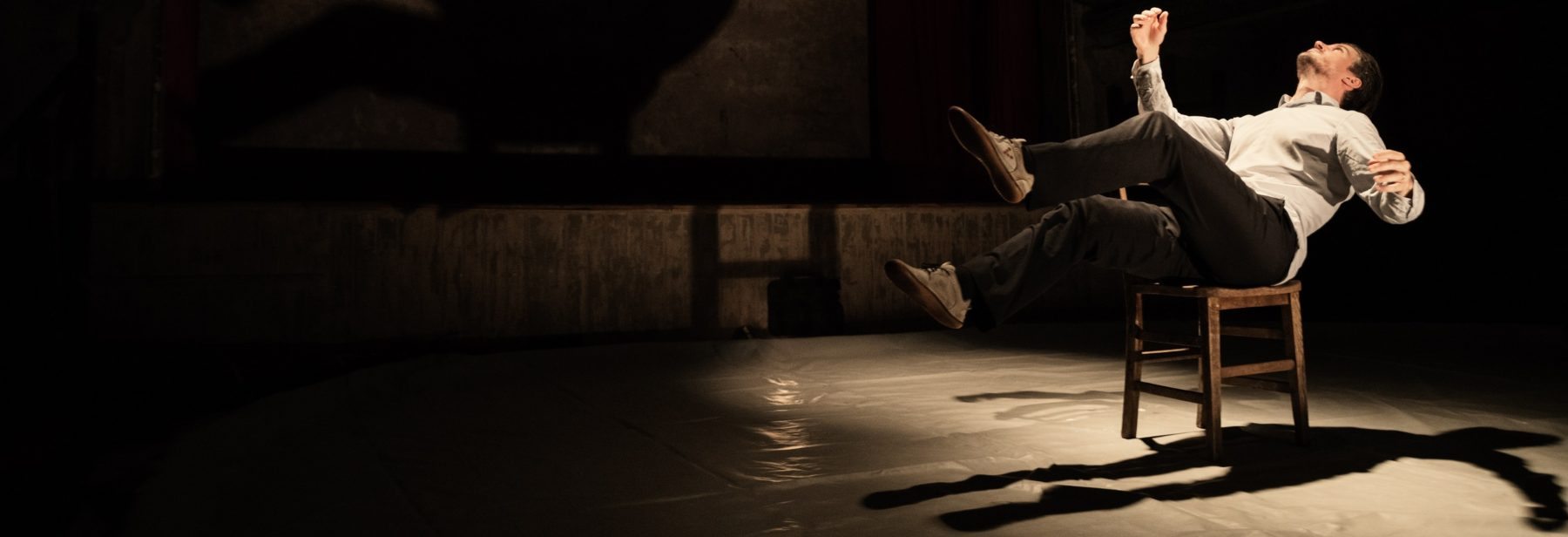Paradise Lost (lies unopened beside me): Review
When it comes to literature, I’m no traditionalist, but there’s been a place in my heart for Paradise Lost since I read it in my first year at Warwick. I was inspired by the unconventionality of how it treated its subject matter, and impressed by the huge questions which Milton was brave enough to pose. In Paradise Lost (lies unopened beside me), Ben Duke raises the bar with a fundamental, successful, and highly thought-provoking reworking of Milton’s text.
The phrase ‘one-man show’ has never been one I’ve received particularly well; I suppose I’m sceptical about just how entrancing one person can be to a large group of people. After seeing this show, I can’t really imagine any number of people who wouldn’t feel entirely captivated and transported by Ben Duke. It’s a few days since I watched him perform, and I still can’t get over just how taken in I was by the world he managed to construct with a chair, some chickpeas, a bunch of sticks, and his body.
Duke crafted a beautiful piece of theatre which firmly cemented Paradise Lost’s rightful place in the 21st century
Ben performed with a perfected blend of seriousness and ridiculousness about what he was doing. Perhaps Lucifer’s fall wasn’t a street fight outside a flat because of God’s pregnancy with Jesus, but hey, if it’s a one-man show you’ve got to take liberties. And the fact that Ben was able to genuinely create a fight scene between dozens of angels, and have it culminate with a beautiful falling sequence using slow-motion shadows, couldn’t be more laudable.
To me, this production was a way to talk about the difficulties of parenthood: of bearing a child, of raising them, and sometimes of having to watch them suffer. Whether or not this was Ben Duke’s intent, he crafted a beautiful piece of theatre which firmly cemented Paradise Lost’s rightful place in the 21st century. Long may such productions continue.
by Alexei Warshawski
I think I am a little bit in love with Ben Duke. Perhaps, then, it is unfair for me to provide an objective response to his one-man performance of Paradise Lost, which allowed me to indulge in unadulterated adoration of the man himself – be him God or Satan (something I should probably be speaking to a professional about). I was able to speak to Duke on the phone prior to watching the show (read the interview here) and found him to be charming and intelligent, but if I am honest, not entirely convinced by his ability to pull off a solo performance of something with the gravity of the creation of the world and all of mankind.
But call me a sceptic.
The piece was a joyful spectacle of the extremities of life, a touching human tribute to the condition of man. It explored the desperate need to create something worthwhile, to shout into the void and perhaps hear something, or someone, call back. In doing so Duke reflected the sheer absurdity of life itself, as man (and God) desperately tries again and again to create a legacy. All done, with the assistance of some chickpeas, a nude body suit, and a chair. Oh, and also hundreds of litres of water and an eclectic soundtrack – everything from Strauss to Janis Joplin.
Ben Duke makes a man of God as God makes man
Like Milton, Duke creates a space in which the ineffable becomes real, something which the medium of dance lends itself to. And while these dance sequences had the potential to seem little self-indulgent, that wouldn’t be so far from the nature of creation.
Duke was at his best as an affable, awkward and adorable God. Watching God ask for Lucifer’s number in the throng of a nightclub or pleading with the Roman guards to take his son from the cross: “anyone else”, makes a man of God as God makes man. This is only heightened by the snippets of real life that punctuate the performance, the celestial struggle of getting the kids in the car in the morning and making sure you don’t miss the train.
What I had been ready for a was a one-man portrayal of God and Satan and the Angels; what I had not been anticipating was a one-man portrayal of mankind.
by Lara Carroll

Comments